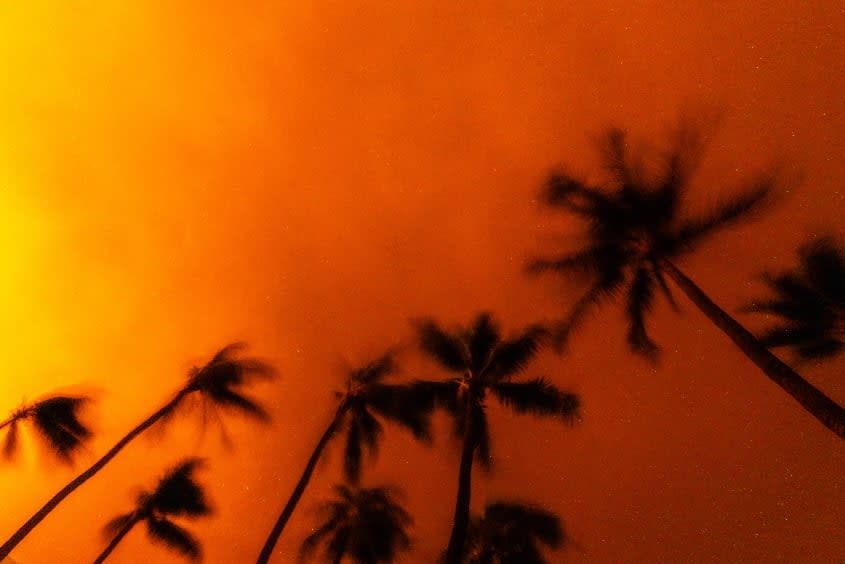The growing threat of urban wildfires

Maui's wildfire is one of the deadliest urban fires in U.S. history, with a death toll of at least 114 people and many more missing. And these fires are going to become increasingly common.
What are urban wildfires?
Urban wildfires happen in residential and developed areas like the historic town of Lahaina on Maui. They develop when a fire occurs at the wildland-urban interface (WUI) of a region, which is the "zone of transition between unoccupied land and human development," per the U.S. Fire Administration. "It is the line, area or zone where structures and other human development meet or intermingle with undeveloped wildland or vegetative fuels." More building has occurred in these areas as people want to gain proximity to nature.
Fires in these areas have been on the rise, largely due to the combination of climate change and human development. "The expansion of the built environment and the growth of settlements and their long-term resource requirements have been dramatic across the globe," according to a study published in the journal Nature. "The most immediate human-environmental conflicts arise where buildings are built in or near wildland vegetation." Climate change has also caused more fires as the heat sucks moisture from the vegetation, making them more likely to catch fire.
Essentially, the hotter fires from climate change are "burning human structures not as collateral but as fuel," with the wind spreading the flames "from home to home as earlier fires would jump from tree crown to tree crown," wrote David Wallace-Wells in a piece for The New York Times.
Resemblance to 2018's Camp Fire
The historic resort town of Lahaina was left as a "scene of charred devastation," as described by The Washington Post. "When fire consumes a community, it burns indiscriminately through products people need for everyday life." This fire bears many similarities to the 2018 Camp Fire in California.
While the Maui fire is the deadliest in the U.S. in over 100 years, the Camp Fire was the previous record holder, with 85 deaths and 18,800 homes and businesses lost in the Town of Paradise, per CNN. Much of the deadliness of both disasters was the lack of preparation for fires. "Because of exposure to many past disasters, the Town of Paradise may have underestimated the speed at which a fire could spread," according to a report by the Town of Paradise following the fire.
"There are no firefighting capabilities for structure-to-structure urban fire in winds like that," Thomas Cova, who studies wildfire evacuations at the University of Utah, said of Lahaina to Wired. "Once one structure catches on fire, if the wind's blowing like that, it becomes like a blowtorch against the neighboring home."
Will there be more?
Yes, for two main reasons: climate and development. The changing climate will create more fire-hazard areas because of the increase in dry vegetation. And wildland-urban interfaces will continue to grow by approximately 2 million acres per year, with 60,000 communities already at risk for WUI fires, according to the U.S. Fire Administration. "Of all people living near 2003-2020 wildfires (0.4 billion), two-thirds have their home in the WUI, most of them in Africa (150 million)," the study in Nature reported.
"We've long believed the built environment offered formidable firebreaks and worried over what might be lost when fires passed near homes as a form of tragic collateral damage," remarked Wallace-Wells. In any developed area "where you have a wildland-urban interface and then you have any kind of complicated transportation, where you don't have free egress, that's problematic," Ann Bostrom, a risk communication researcher at the University of Washington, told Wired.
Many areas, especially those like Maui, that are not prone to fires, lack the resources to withstand fires and are grossly underprepared to execute large-scale evacuations when necessary. As Wallace-Wells reported, "When the fire broke out, almost no one seemed adequately prepared."

